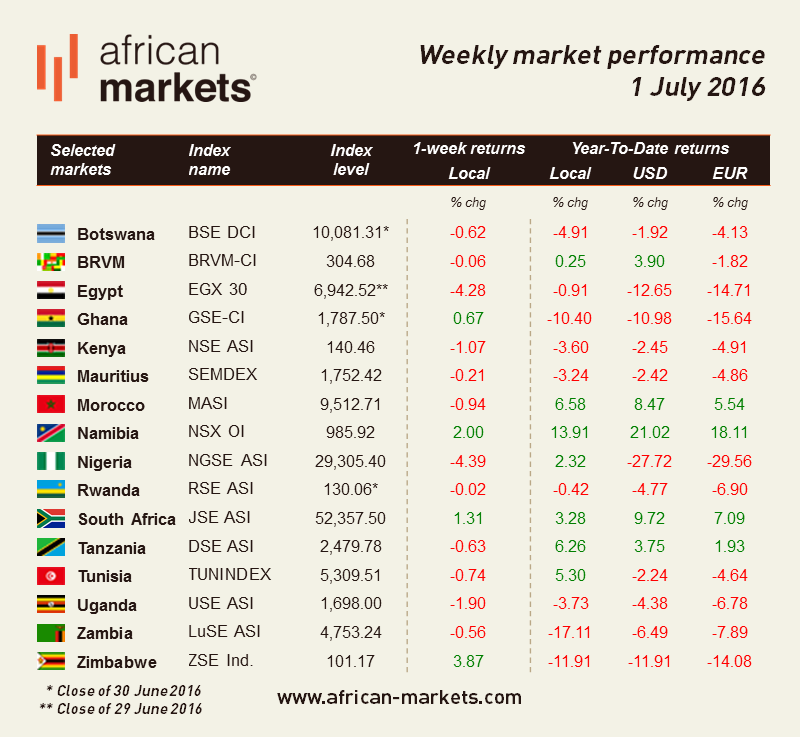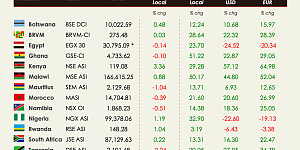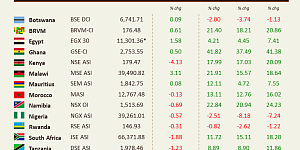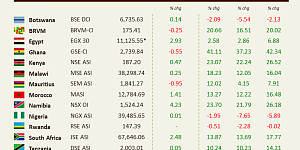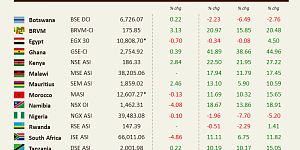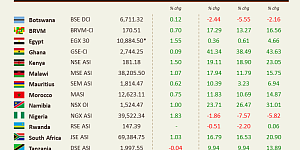After a strong degree of uncertainty stemming from the Brexit global markets stabilised towards the end of the week and most risk assets are bouncing back. Sentiment over Brexit still is the key driver but attention is turning back towards the data. Expectations around US Fed hikes seems to have completely u-turned with some even pricing in the potential for rate cuts. The market expects the Fed to maintain rates on hold for the rest of this year which bodes well for African market currencies. The prospect of stimulus measures in Asia and further in Europe is helping ease concerns about Brexit and triggering a global search for yield.
JSE ASI rose by 1.31% as there has been a firm appetite for equities over the last week which has augmented even further in the wake of Brexit. On top of that, South Africa trade surplus beat every expectations as it amounted to 18.7 billion rand ($1.27 billion) from a revised deficit of 130 million rand in April thanks to an increase in exports of precious metals and stones. Bloomberg consensus pointed at for a surplus of 4.1 billion rand. This bodes well for the country whose GDP contracted 1.2% in the first quarter. In other news, Anheuser-Busch InBev NV ticked another box in their takeover of SABMiller Plc as the deal was conditionally approved by South Africa’s antitrust regulator provided a change in the timing of the sale of SABMiller’s 9.4 billion-rand ($634 million) stake in South African drinks maker Distell Group Ltd. According to the Company, the deal is expected to be completed in the second half of this year.
Two weeks after abandoning the dollar peg, naira devaluated round 30% but it still seems as if the end of the peg has failed to trigger a rally in Nigerian stocks. While the foreign-exchange policy change was widely welcomed by investors, it suggests investors may still expect the currency to further devaluate and the fundamentals to strengthen before making a move. NGSE ASI plunged 4.39%.
The EGX30 plunged 4.28%, closing at 6,942.5 points, its lowest level in 16 weeks or since 11 March. Selling dominated this week's trades on the EGX, that were deepened by the UK's referendum to exit the European Union. The EGX was closed on Thursday on the occasion of the 30 June Revolution.
In Rwanda, the central bank decided to maintain its key repo rate unchanged at 6.5% following the Monetary Policy Committee meeting. The committee justified its decision quoting a liquid financial sector which is still growing and sufficient buffers able to weather adverse shocks. The RSE ASI was fairly stable at -0.02%.
Its neighbouring country, Uganda, has seen its currency suffering from volatility from the strengthening of the dollar following the Brexit. The UGX depreciated from the average of UGX 3,350 to a USD to more than UGX 3,400 in just two days. The USE ASI decreased 1.90%.




